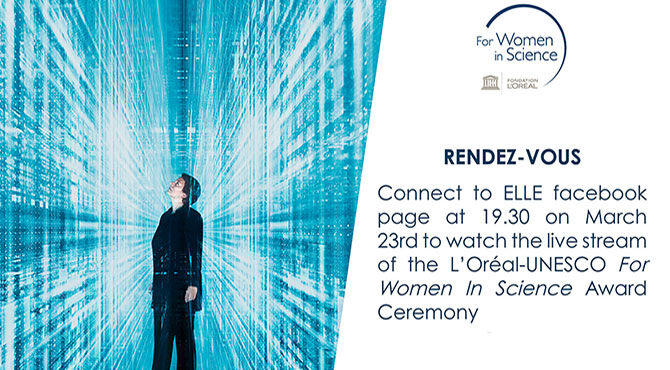Outstanding women scientists honoured in Paris
The 19th edition of the L’Oréal–UNESCO For Women in Science Awards will take place at La Maison de la Mutualité in Paris this evening.

- Professor Niveen M. Khashab, associate professor of chemical sciences at the King Abdullah University of Science and Technology (KAUST) in Thuwal, Saudi Arabia. She has won the award for designing novel nanoparticles that could improve early detection of disease. Her work in analytical chemistry could lead to more targeted and personalised medical treatment.
- Professor Michelle Simmons, director, Centre of Excellence for Quantum Computation and Communication Technology at the University of New South Wales, Australia. She has won the award for pioneering ultra-fast quantum computers. Her work on atomic-scale transistors could give birth to tomorrow’s computers.
- Professor Nicola A. Spaldin, head of the Materials Theory Group at the Swiss Federal Technical University in Zurich, Switzerland. She has won the award for reinventing magnetic materials for next-generation electronic devices. Her research on multiferroic materials could lead to a new generation of electronic equipment components.
- Professor Maria Teresa Ruiz, professor at the Department of Astronomy at the University of Chile, Chile. She has won the award for discovering a new type of celestial body, halfway between a star and a planet, hidden in the darkness of the universe. Her observations on brown dwarfs could answer the universal question of whether there is life on other planets.
- Professor Zhenan Bao, professor in the Department of Chemical Engineering at Stanford University, United States. She has won the award for inventing skin-inspired electronic materials. Her research on flexible, stretchable and conductive materials could improve the quality of life of patients with prostheses.
This year’s Relocate black-tie Gala Awards Dinner will be held at a prestigious new venue, the Science Museum, London, on Thursday 11 May.Says Fiona Murchie, Relocate’s managing editor, “These awards are now of global stature, attracting entries from both UK and international organisations. They’re all about showcasing excellence, innovation and best practice, so the Science Museum is the perfect venue for celebrating our winners in this tenth anniversary year.“As we’ve been highlighting across the Relocate media through our coverage of the CBI Annual Conference and other high-profile events, innovation – whether in science, the space industry and technology or in other fields – is the key to global prosperity and growth, particularly in challenging economic times and with Brexit now a reality.“With growing skills shortages in key areas like science, technology, engineering and maths (STEM), employers are increasingly competing for the best and most creative talent. Our event will attract high-calibre international attendees across industry and the education sector.”


































